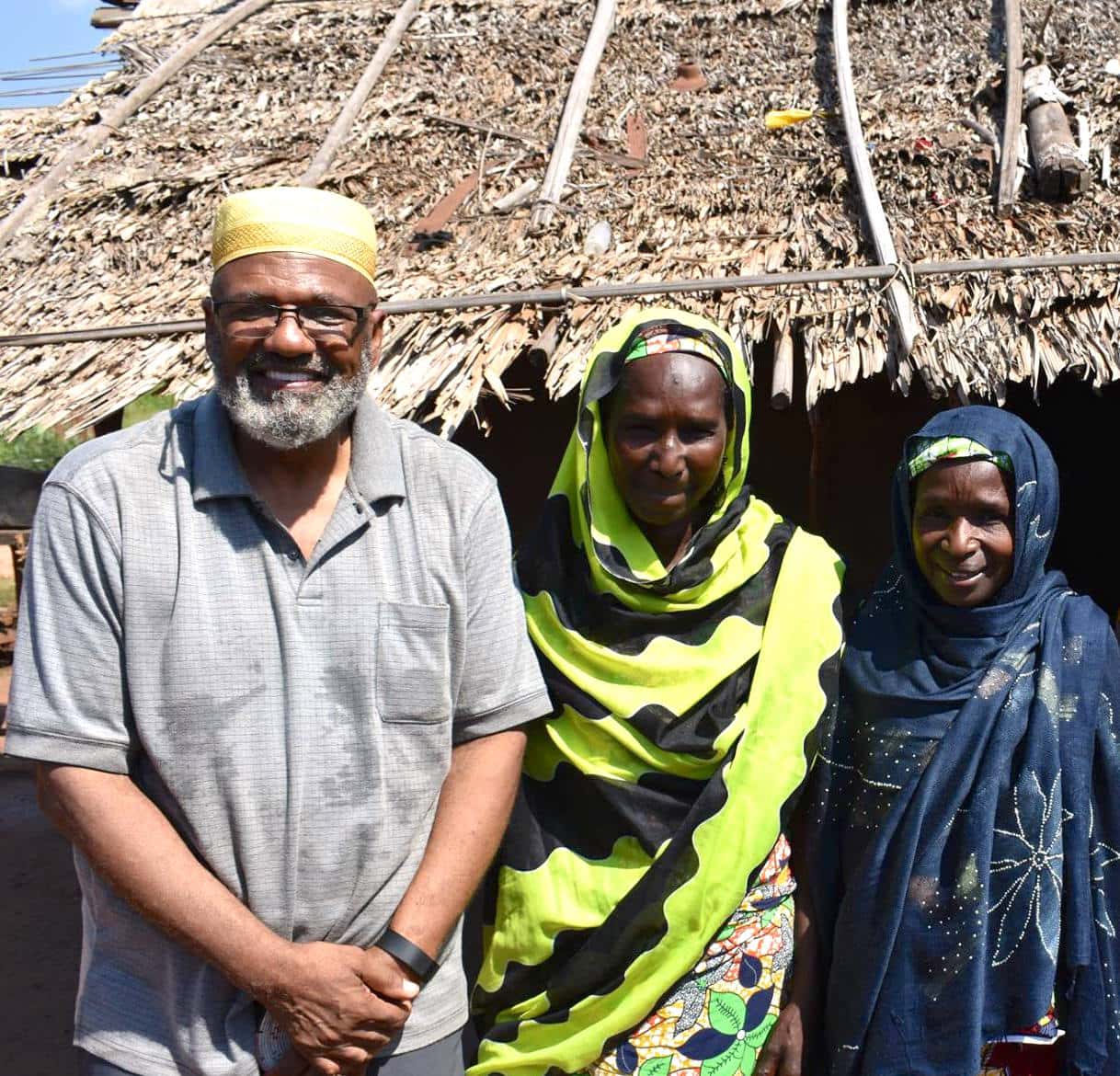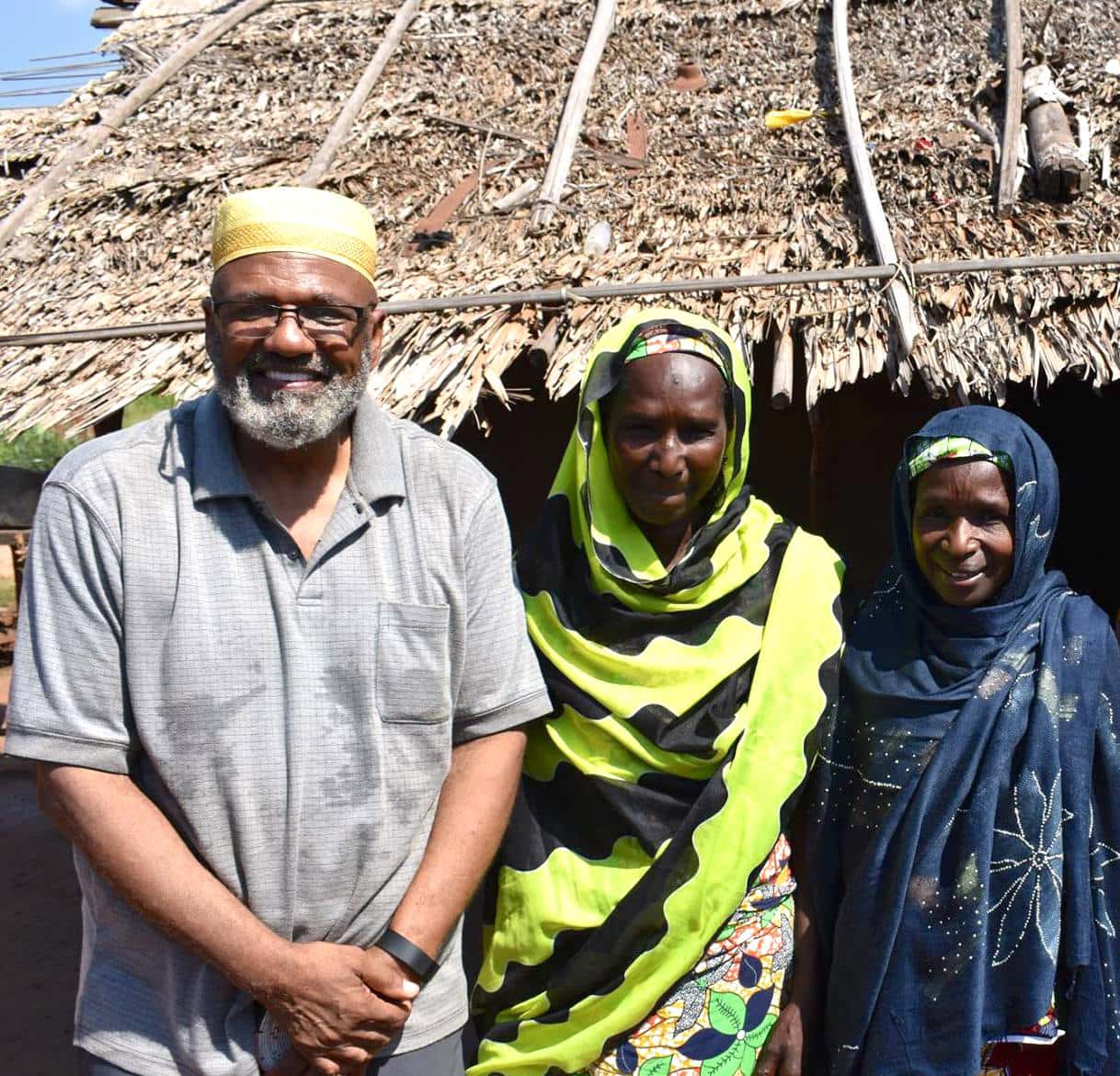
DE SOTO, TEXAS (February 17, 2017) – Josef Rasheed says that one of his key goals as the Serve Globally regional coordinator to Africa is to increase the number of African Americans missionaries on that continent. Only a handful of Covenant African Americans have served as missionaries there.
Misconceptions have contributed to that situations, said Rasheed, who also continues to serve as pastor of CrossRoads Covenant Church in De Soto, Texas, in a recent interview. “We were taught by our white schoolteachers growing up and lots of other people—probably older African Americans as well—that Africans don’t want anything to do with us because we had been slaves. Because of that, we would rather go to Europe or South America. We’d want to go anyplace but Africa.”
Sharon Davis says she was taught the same thing. When she moved to Cameroon to serve as a short-term missionary, she learned the truth was different. “When the people found out I was a missionary, they jumped and shouted and ran to me almost knocking me down,” said Davis, who attends Oakdale Covenant Church in Chicago. “They were so happy to see an African American missionary for the first time. At first, I didn’t want to be called a missionary because of the negative stereotype I had heard about missionaries imposing their cultures on the peoples of the world. That day I was proud to be an African American missionary.”
Last year Rasheed traveled to Cameroon with Davis and Covenant World Relief director Dave Husby. “Africans would come up to us and say, ‘We didn’t think American black people came to Africa,’” Rasheed said. “It was shocking.”
At one stop, the group met with the leader of the government’s opposition party, who also told Rasheed that he was amazed the African Americans had come to their country. “I took a chance and told him how we were taught that Africans didn’t want anything to do with us,” Rasheed said.
The Cameroon leader replied, “You were taken from us,” then added that it didn’t matter which country the slaves’ ancestors had come from. “‘All of Africa is Africa. You were taken from your homeland. We don’t want to mistreat you.’”
“I also heard the same thing in Kenya,” Rasheed said. “I heard it in Ethiopia. So it’s very important that we understand that there is not only a longing to reconnect from our end, but there also is a longing from their end. They consider us their brothers and sisters.”
Rasheed acknowledged that he experienced a change of heart when he traveled to Africa for the first time.
“I thought I was going there to help people,” he said. But then he visited an orphanage where an African was showing them the different fruits they grew. “He was saying, ‘This is our land.’ In my heart and my mind, I interpreted that as if he were saying, ‘I’m African, you’re not.’”
Rasheed still regrets his own response. “I said, with an attitude, ‘Let me get off your land right now.’ He responded, ‘No, the Bible teaches us that the whole earth belongs to the Lord,’ and he motioned back and forth and said, ‘This is our land.’ And, man, I wept like a baby. I had made a distinction that was very inappropriate. Actually they were helping me. They were helping my theology, they were helping my idea about community.”
That experience helped shaped Rasheed’s desire to encourage African Americans to missionary service. “My interest is to take African Americans to Africa and show them schools, show them families, show them how they are creating brand-new ways of learning and travel. I want them to see people who have suffered the same disadvantages we’ve had, but don’t have the economic resources that we have and are still persevering. I want them to see engineers, teachers, and nurses.”
He noted, for example, the awe he felt visiting the hospital operated by the Congo Covenant Church in Karawa. “The hospital hasn’t had electricity for over two years. To run the X-ray department they pull out these car batteries, and hook up the car batteries in a series so there’s enough charge to get the X-rays they need. Then they go back and charge the batteries through solar panels. That’s creativity, that’s ingenuity.”
Rasheed acknowledged that he experienced a change of heart when he traveled to Africa for the first time.
Rasheed said encouraging more African Americans to serve in missions begins with sharing his vision with the people he knows personally. The second step is for local pastors to encourage their congregations.
“In our own community we have to encourage the whole aspect of the bigger picture of God’s work in the world,” Rasheed said. “In the black church the pastor often sets forth your mission. People follow whatever the pastor is doing.”
The first African Americans from the Covenant to serve in Africa, were Melvin and Vergie Dillard, who are members of Oakdale Covenant Church and who served in several countries, including the Democratic Republic of the Congo when it was called Zaire.
It was the Dillards who inspired Davis to consider mission work. In a 2010 local radio interview, Darrell Griffin, pastor of Oakdale, said it was influence of the Dillards as well as the denomination’s historical commitment to missions that motivated him to guide the large African American congregation on the city’s South Side to become involved in missions.
“I’m bombarded on this on an ongoing basis,” Griffin said. “It brought world mission for me from the back burner to the front burner.” The church has since made multiple trips to South Africa.
Other African American Covenanters to serve in Africa have been pastor David and Debbie Williams, who served for two years in Congo. David is pastor of the Abyssinian Christian Church in Fort Collins, Colorado.
Africa is not the only place where African Americans are underrepresented on the mission field. According to the 2007 African American Missions Mobilization Manifesto by Columbia International University, blacks make up less than 1 percent of the total number of missionaries from the United States.
Rasheed said that because African American churches tend to be located in lower-income neighborhoods, supporting missionaries can be an extra financial challenge. But, he adds, “African Americans have to dig into our pockets, and we have to send, and we have to support African Americans who want to go and serve. We have to educate our children to understand that missionary possibilities do exist.”
It is also important that the broader Covenant make a deliberate effort to seek and support African Americans who want to serve internationally, he added.














